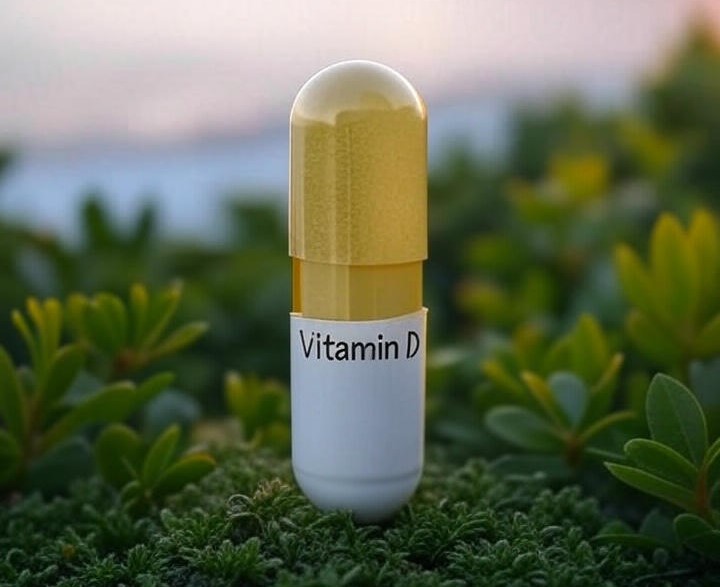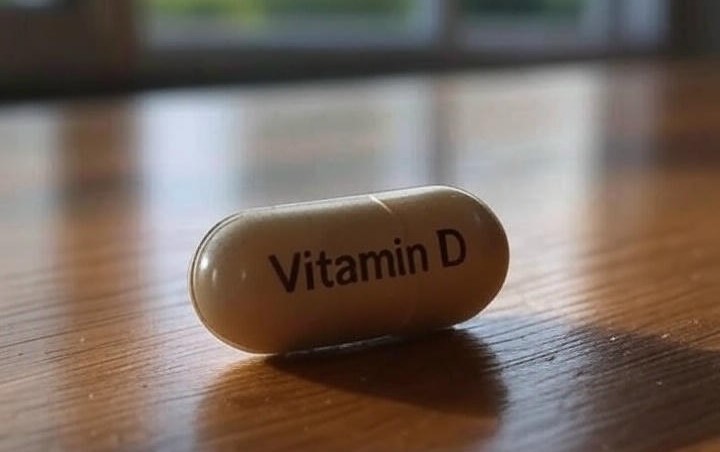Vitamin D May Really Slow Down Aging, According to a Harvard Study
In an innovative finding, a new Harvard study suggests that Vitamin D may really slow down aging, giving hope for a better, longer life. Primarily recognized for its function in maintaining bone health, vitamin D is now being connected to cellular aging, decreased inflammation, and increased longevity.
The Harvard Research That’s Revolutionizing the Discussion
A comprehensive study on the effect of vitamin D levels on biological aging markers was carried out by Harvard Medical School researchers. The results were unambiguous: individuals with adequate vitamin D levels exhibited reduced epigenetic aging, which is a reliable predictor of biological age. This suggests that by affecting how our cells mature over time, vitamin D may actually slow down aging.
One of the study’s principal authors, Dr. Karen Liu, stated,
Our data suggest that maintaining healthy levels of Vitamin D can have protective effects against cellular aging, inflammation, and oxidative stress.
How Does Vitamin D Slow Down Aging?
Vitamin D seems to affect a number of important aging processes, including:
- Reduces Inflammation: Aging is accelerated by persistent inflammation. Vitamin D lowers inflammatory indicators and regulates immunological responses.
- Protects DNA: As people age, their telomeres—the protective caps at the ends of DNA strands—get shorter. Longer telomeres have been linked to higher vitamin D levels.
- Supports Brain Health: Reduced risk of neurodegenerative disorders and enhanced cognitive function are associated with enough vitamin D.
- Boosts Skin Regeneration: Vitamin D contributes to skin growth and repair, which may lessen wrinkles and fine lines, two indications of aging.
These systems demonstrate why Vitamin D may really slow down aging, This makes it more than just a supplement; it might play a significant role in age prevention plans.

Vitamin D from Natural Sources
Think about using these sources in your lifestyle to maximize the anti-aging effects of vitamin D:
- Sunlight: Several times a week, spend 10 to 30 minutes in the sun.
- Fatty Fish: Vitamin D is abundant in sardines, mackerel, and salmon.
- Fortified Foods: Seek out vitamin D-fortified milk, orange juice, and cereals.
- Supplements: Particularly crucial for those who live in areas with little sunlight or have problems with absorption.
A healthcare professional should always be consulted before beginning a new supplement regimen.
Final Thoughts
Given that aging is one of the biggest global health issues, this Harvard study offers convincing proof that Vitamin D may really slow down aging. This nutrient is a vital ally in the battle against time, maintaining brain and skin health and lowering cellular stress.
Keeping your vitamin D levels at ideal levels may be one of the easiest yet most effective ways to stay young and healthy.
📌 FAQ: Vitamin D May Really Slow Down Aging, According to a Harvard Study
❓ What findings did the Harvard study make about aging and vitamin D?
According to the Harvard study, people with higher vitamin D levels exhibited slower biological aging as indicated by epigenetic markers. This means Vitamin D may really slow down aging by maintaining DNA integrity, lowering inflammation, and shielding cells from harm.
❓ In what ways can vitamin D aid in delaying the aging process?
Vitamin D preserves DNA by preserving telomere length, boosts immunological response, lowers chronic inflammation, and enhances skin and brain health. These processes help to slow down the cellular and outward manifestations of aging.
❓ Is it true that vitamin D pills make you appear younger?
Good sources of vitamin D3 include natural sunlight, fatty fish (such as salmon and sardines), fortified meals, and vitamin D3 pills. The best course of action is to speak with a healthcare professional to ascertain the right dosage for your age and lifestyle.

